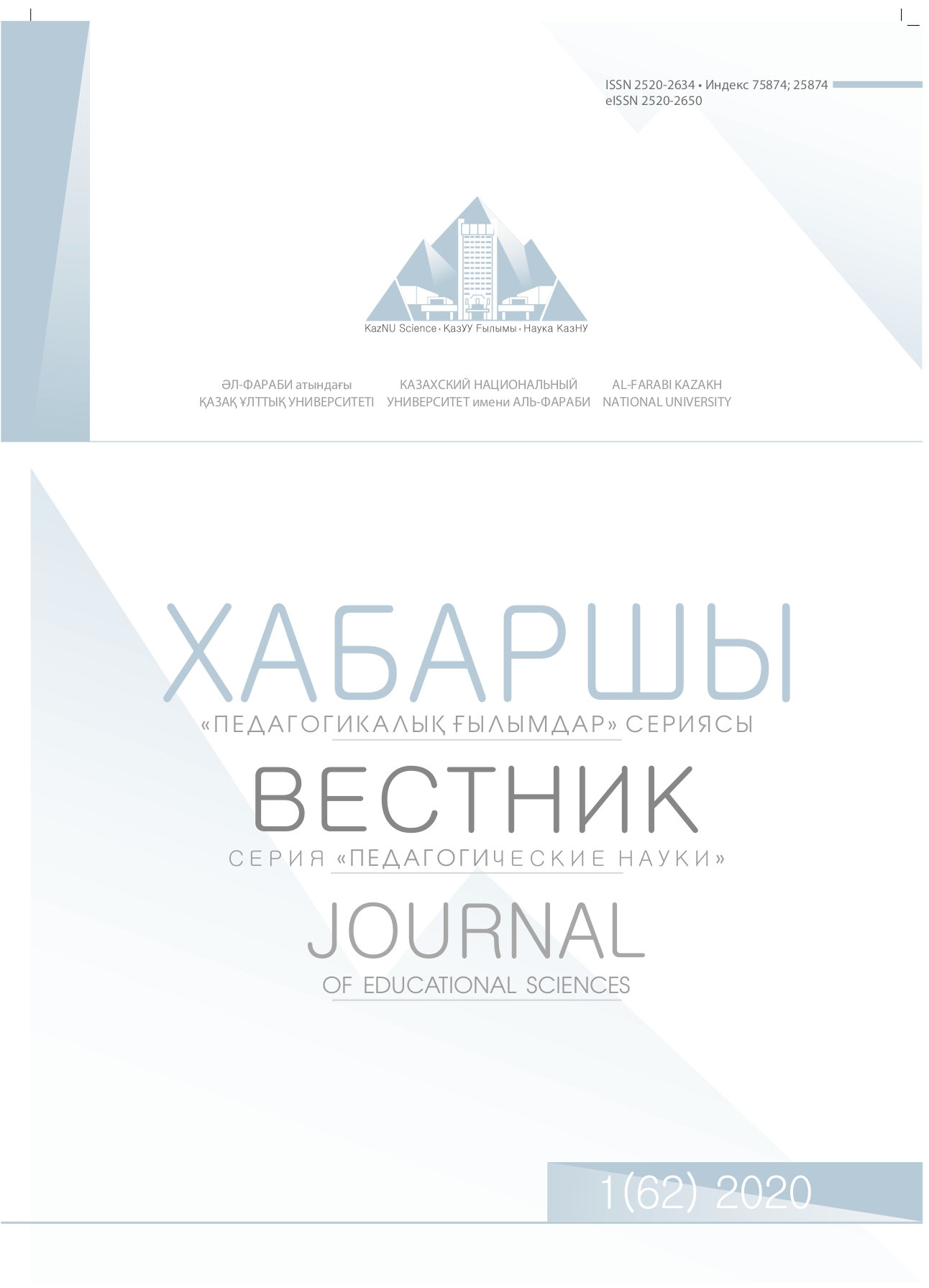THE READINESS OF FUTURE SOCIAL PEDAGOGUES TO WORK IN INCLUSIVE EDUCATION: RESULTS OF A DIAGNOSTIC RESEARCH
DOI:
https://doi.org/10.26577/JES.2020.v62.i1.05Аннотация
The results of a diagnostic research on the readiness of bachelor students of the specialty “Social pedagogy and self-cognition” for practical work in an inclusive education are presented in the article. The research was attended by respondents-students of the third and fourth years of the specialty “Social pedagogy and self-cognition” of the department of pedagogy and educational management of Al-Farabi Kazakh National University (Almaty, Republic of Kazakhstan). The authors analyzed the difficulties encountered by students during pedagogical practice with a contingent of children with special educational needs; what methods are most often used with students with disabilities and give the most tangible results in correcting children of this category; what qualities should a social pedagogue have who works in an inclusive education. In the course of analyzing the results of the research, the researchers found out about the predisposition of bachelor students of the specialty “Social pedagogy and self-cognition” to practical work in an inclusive education. The set of professionally significant qualities of a social pedagogue that are necessary for effective professional activity in the conditions of inclusion is defined: empathy, resistance to conflicts, stress resistance, tolerance, communication and organizational skills. It is recommended to update the content of training specialists with innovative strategies and models of inclusive education used in international practice. Key words: content analysis, development of competences, inclusive education, limited health opportunities, qualitative analysis, pedagogical experiment, special educational needs.















